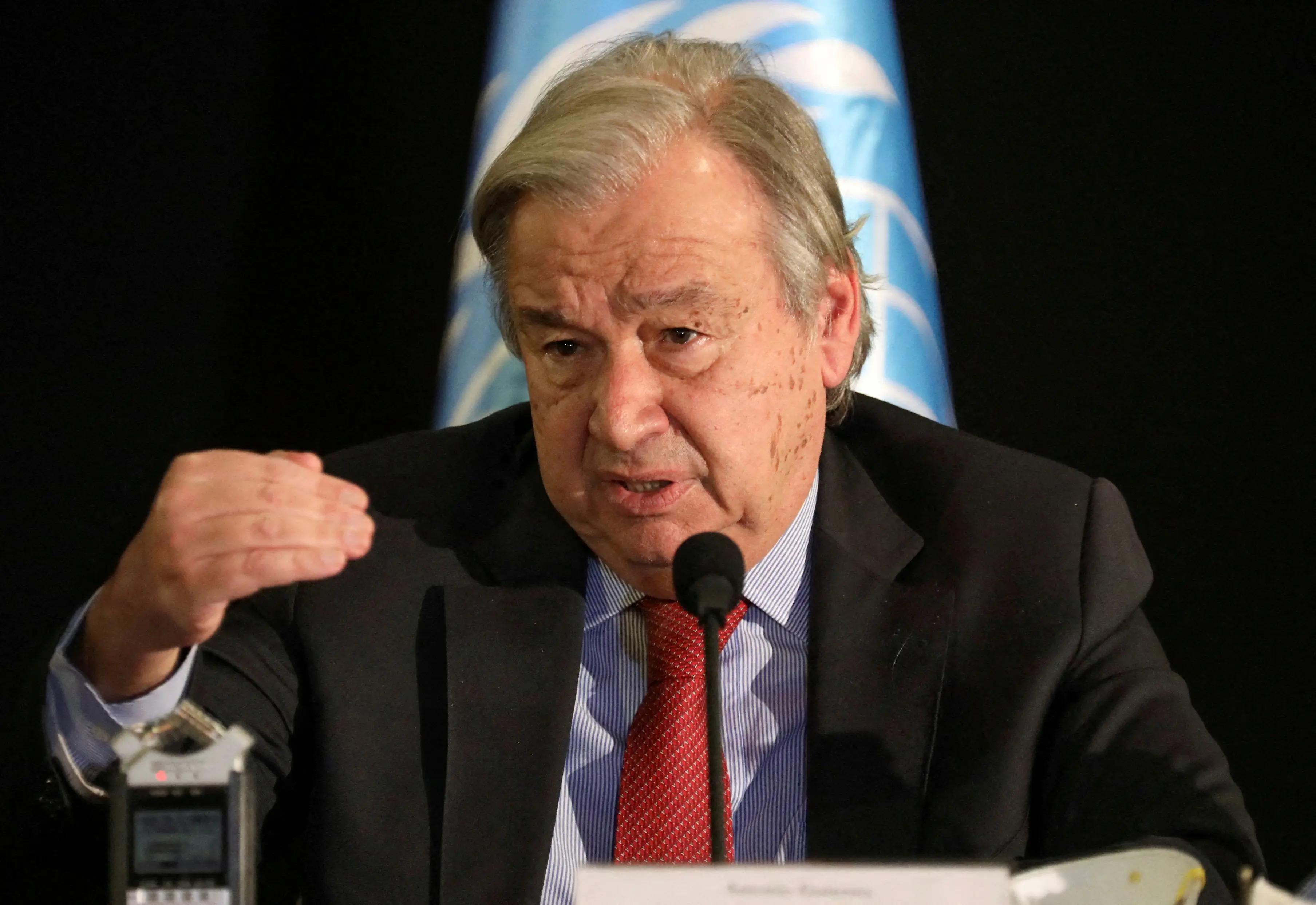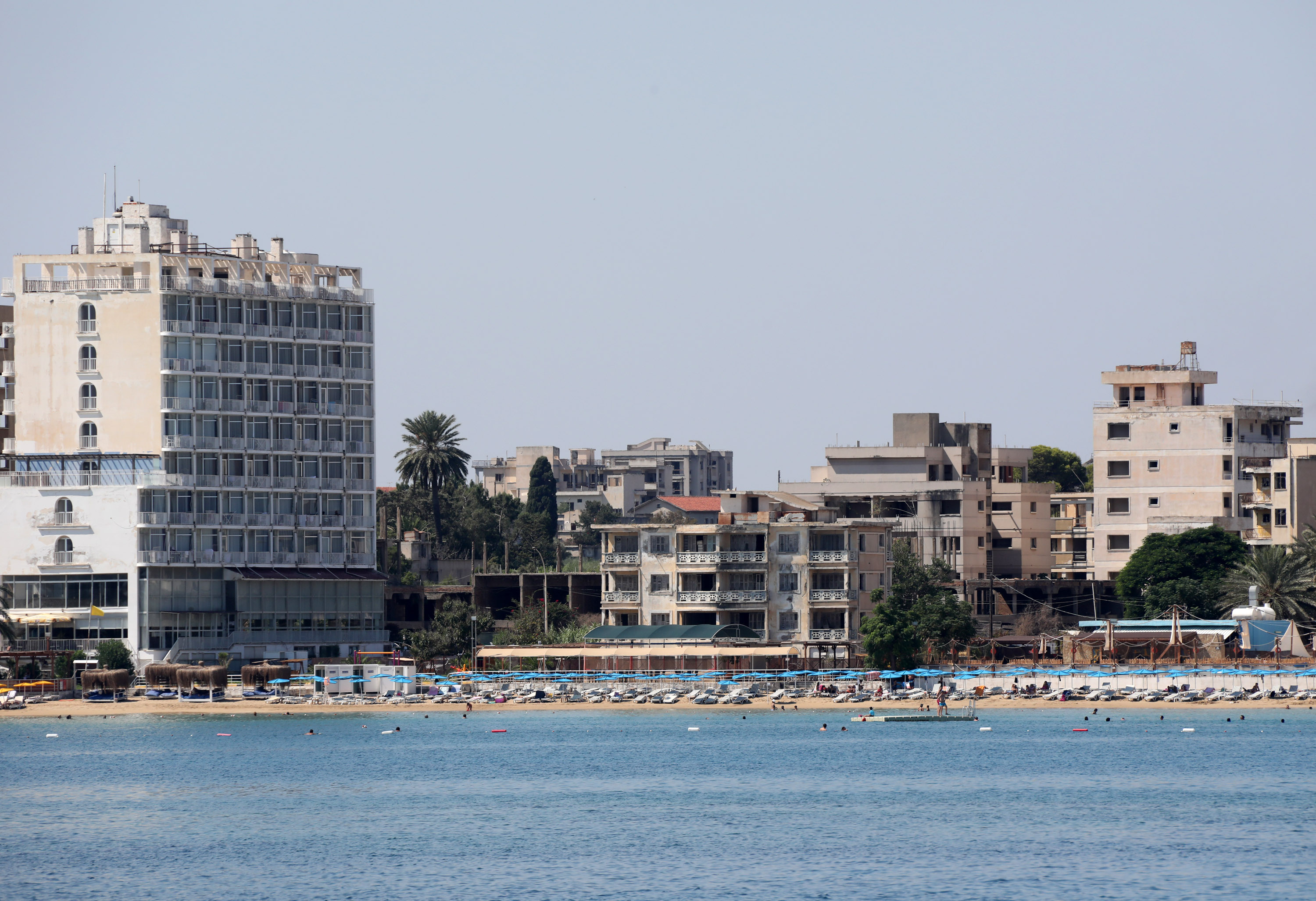Christodoulides, who later in the year tried to gaslight the Turkish foreign minister in a video that went viral, suggested the terms of reference for a resumption of a new round of talks could be reached. That would have been something decisive. Instead the year was decisive in that it became clear as it went along that there would be no new talks probably until after the elections in the north next April.
The year was not however without a few mildly interesting developments other than the impact on relations of the ongoing hydrocarbons saga, which presented far more serious issues than the leaders’ day-to-day sniping.
Aside from the developments in that arena, the only thing that provided the media with a decent amount of fodder was the furore over Varosha which took centre stage in the second half of the year and allowed both sides to engage in a lot of grandstanding. The Berlin meeting between the leaders and the UN Secretary-General in November was probably a close second for headline writers, despite the obvious lack of substance or expectations ahead of time.
There was an extensive effort in September to reach the terms of reference in cooperation with UN envoy Jane Holl Lute who was to stay for a weekend but ended up here all week. It was going well apparently from the weekend through to Tuesday but then a switch just went off and the Turkish Cypriot side – at Ankara’s behest – began demanding preconditions be included in the terms of reference, which was rejected by the Greek Cypriots and it all went downhill for the rest of the week before Lute left empty handed yet again.
The absolute highlight of that whole drama was hearing Lute speak publicly for the very first time since she was appointed a year previously.
At a reception for the leaders at the end of a trying week, Lute said: “I want to thank both of the leaders. We’ve had serious discussions that have been quite focused. This is an effort that is ongoing, and both leaders have committed to continuing the process.” It’s a statement that says nothing but yet says a lot. The leaders were not committed it seems to reaching a conclusion but committed to continuing the process.
And continue it they did without any conclusions yet again when they went to Berlin in November. The writing was already on the wall for that long before they left the country. This was when President Nicos Anastasiades conceded that he had told former Turkish Cypriot leader Mehmet Ali Talat at a reception that the tripartite meeting in Berlin would be in vain and a waste of money. Anastasiades said the reason for his lack of optimism was due to previous conversations he had with Turkish Foreign Minister Mevlut Cavusoglu, which indicated to him there would be no result from his meeting with Turkish Cypriot leader Mustafa Akinci and UN Secretary-General Antonio Guterres in Berlin on November 25.
Guterres on a few occasions throughout the year had thrown out a few strongly worded but veiled statements about last chances, trust, cooperation and other diplo-speak but none of it had any real impact on actual developments since Turkey was in the driving seat and doing whatever it wished in Cyprus’ exclusive economic zone.

In line with proceeding as if the Cyprus issue would never be resolved, Ankara and the Turkish Cypriots kept moving forward with plans to that effect. Aside from the violations of the EEZ, one such plan that caused real consternation, starting in August, was when Turkish Cypriot ‘foreign minister’ Kudret Ozersay began bringing journalists and others into the fenced-off town of Varosha in Famagusta talking about their plans to open it up to settlement.
The Greek Cypriot side hot-footed it to the UN after a blitz of diplomatic activity and secured a reaffirmation on October 9 of previous UN Security Council resolutions regarding the return of Varosha to its lawful owners. Despite this, subsequent statements from the north suggest they plan to move ahead regardless.
Other than that, the only other incidents would have been the Christodoulides-Cavusoglu encounter in September where the former tried to corner the latter into making ridiculous statements that belonged within negotiations during the chance meeting in the hallowed halls of the UN, but was instead the one who embarrassed himself in a viral video.
Turkish Cypriot leader Mustafa Akinci did not escape the headlines either. In October, after Turkey invaded northern Syria, Akinci posted some anti-war comments on Facebook that not only sparked the fury of Tayyip Erdogan but also bitterly divided political parties in the north with calls for his resignation. He managed to weather the storm and remains at the top of the polls for re-election.
But whether he and his ‘friend Nicos’ can, three years after Crans-Montana this coming July, get back on track remains to be seen.

